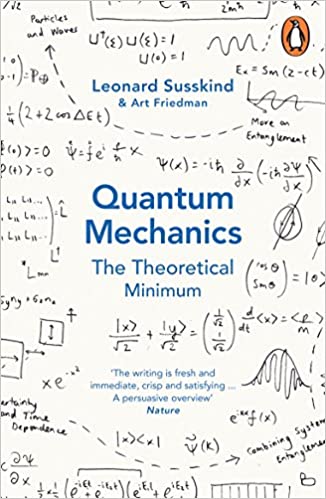It’s been about a year since I got started with Quantum Computing. My journey with Quantum Computing began with a book that caught my attention on a library shelf. The book was none other than Quantum Computation and Quantum Information written by Michael Nielsen and Isaac Chuang. Which I later came to know was the standard textbook in the field. The reason I initially started with Quantum Computing was just the excitement to get to know more about this promising and hyped field.
But soon I got intimidated with the jargons and mathematics of this Physics heavy field. Though I had a background in Mathematics and Physics which I studies in both, High School and my freshman and sophomore years in college. I did not have a solid background in Quantum Mechanics, Quantum Information, and Quantum Computing. Being a Software Engineer having a background in Mechanical Engineering, I considered myself an outsider in the field of Quantum Computing and faced an awful lot of challenges.
Having gone through the trouble of getting to understand this field and having the benefit of hindsight, in this blog post, I will talk about the resources and study material you can go through to get you up and running in the field of Quantum Computing. I hope this blog post serves as a Software Engineer’s Guide to Quantum Computing.
Quantum Mechanics: The Theoretical Minimum
Quantum Computing fundamentally relies on Quantum Mechanics, a topic that many Software Engineer are not well versed with. I find it extremely reasonable to get the fundamentals in place first before moving to advanced topics, therefore I believe Quantum Mechanics is not a bad place to start your journey in the field of Quantum Computing. For this reason, the very first book I would suggest is a book on Quantum Mechanics itself.
Recently, I read the book Quantum Mechanics: The Theoretical Minimum by Leonard Susskind and George Hrabovsky. The book takes you into the deep water of Quantum Mechanics one step at a time in a way that it does not feel intimidating. As the book title reads, the authors of the book try to keep the Theoretical concepts at the bare minimum and bring up only what is required to know.
The authors start from the very basics and the only pre-requisites are a decent understanding of high school mathematics, such as vectors, complex numbers, etc and from there take it to a very advanced level. If you want to get into the depths of Quantum Mechanics, which by the way in my opinion is totally worth it, you should definitely go through this book. It is the only resource that I listed on this blog post that talks about Quantum Mechanics in depth.
You might choose to avoid it while starting with Quantum Computing, but if you want to get serious in the field, Quantum Mechanics is an absolute necessity. And this book would be a really good place to start.

Check out the Book- Quantum Mechanics: The Theoretical Minimum on Amazon, here.
Qiskit Textbook
Qiskit Textbook is an online learning resource by IBM Quantum. It takes you on a brief and concise tour of Quantum Mechanics and Quantum Computing. Perhaps the best part of this resource is the snippets of code that are present now and then in between the reading material as examples. This makes it easy to learn Qiskit while simultaneously learning on Quantum Computing. Qiskit Textbook is very well written to make you understand the concepts of Quantum Computing in short. However, it does give a deep dive into Quantum Mechanics. If you do not want to go into the depth of Quantum Mechanics, I would recommend you to use this resource to get started with Quantum Computing.
You can check out the Qiskit Textbook, here.
Qiskit Summer School 2020
Qiskit Summer School is a yearly event organized by IBM Quantum and the Qiskit Community. It was started in 2020 itself and has been organized once more in 2021 since then. The Qiskit Summer School 2020 being the first of the Summer Schools organized by IBM Quantum goes through the basics of Quantum Computing and Quantum Hardware. This resource is especially more recommended for people who prefer to consume videos over written text. If you do not have the time to go through the entire Playlist, I would recommend that you go through the first few lectures delivered by Elisa Bäumer. The notes for these lectures are also available online so you can give your full attention to understanding the subject and not worry about taking notes for future reference.
Like Qiskit Textbook, Qiskit Summer School 2020 does not go too much into the depth of Quantum Mechanics.
You can check out the Qiskit Summer School 2020 Playlist on Youtube, here.
Deep Learning University Tutorials
Want to get the best of all worlds without going through all of the resources? Don’t worry! I got you. I have started working on the Qiskit Tutorials which will cover the required topics in Quantum Computing as well. The tutorial is for people who prefer to follow a series of small tutorials one at a time. I will be working on adding more tutorials to this tutorial series. Stay Tuned!
You can check out the Deep Learning University Tutorials for Qiskit, here.